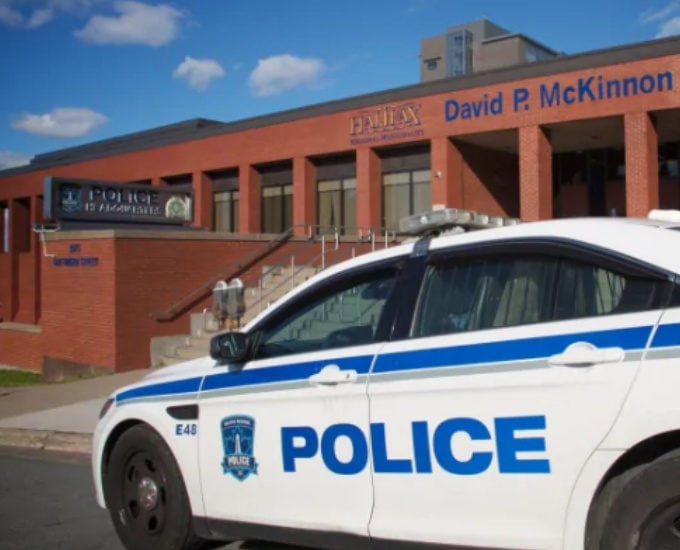
KJIPUKTUK (Halifax) – Establishing a mental health crisis response system that is detached from the police is no longer a fringe or radical idea. It has existed for decades in other jurisdictions, such as Eugene, Oregon and Toronto, Ontario, and is being considered by governments throughout Canada and the United States. Recent best practice guidelines also call for de-centring and diminishing the role of the police in mental health crises.
You might be surprised to learn that Halifax was once considered to be an international leader in mental health crisis responses. And, yet, there is hardly a murmur about non-police, civilian-only approaches to crisis response in Nova Scotia. Innovation and progress in this province have stopped. Why?
More than a decade ago, the Mental Health Mobile Crisis Team (MHMCT) was established in Halifax to improve the handling of mental health crises. The program included a professionally supported telephone line and a mobile crisis team comprised of a mental health professional (e.g., nurse or social worker) paired with a plainclothes, specially trained police officer. A 2010 evaluation of the crisis team revealed some promising results, such as a reduction in the amount of time that police officers spend on scene and an increased likelihood that people in mental health crisis will connect with outpatient mental health services. Frankly, the results weren’t overly impressive, but they seem to have been enough for healthcare and police leadership in Nova Scotia to concentrate efforts and investments in this specific approach during the decade that followed the 2010 evaluation.
Today, the mental health crisis response model in Nova Scotia hasn’t changed much other than expanding its service capacity. The crisis phone line is now available province wide, so that anyone in Nova Scotia can connect with healthcare providers by phone to receive short-term crisis support, assessment and triage, and information about local resources. The crisis line receives about 80 calls per day. The mobile crisis team continues to serve only the Halifax area and is deployed for situations indicating an elevated risk of violence to self or others. The Halifax-based crisis team still pairs a healthcare provider with a police officer. Outside of Halifax, the mental health crisis response system looks rather archaic, mostly comprised of police officers and hospital emergency rooms. Another element of Nova Scotia’s model is a police training program that was developed many years ago and was once considered to be the “gold standard” for police-based mental health education.
As a criminologist, I’ve studied issues at the intersection of the mental health and policing systems for a decade and have been aware of the Nova Scotia approach for almost as long. It seems to me that the Nova Scotia mental health crisis response model has been frozen in time, refusing to evolve and innovate as new approaches, evidence, and demands emerge.
The growing over-representation of people with mental illnesses in jails and prisons has highlighted processes that contribute to their criminalization, including the increasing convergence of health and criminal justice systems. Recent efforts focused on destigmatizing people with mental illnesses have called for reducing punitive, coercive, and non-therapeutic approaches and increasing trauma-informed, recovery-oriented practices in mental healthcare. The growing number of fatalities resulting from police interventions, especially when people are in distress and particularly when people are Black and Indigenous, have highlighted how situations can worsen when police are involved, which have intensified demands to remove the police from the crisis response equation. And, recent research evidence has raised questions about the effectiveness of the model – called Crisis Intervention Teams (CIT) – used here in Nova Scotia for the past decade, casting doubt about the prudence of our province’s exclusive reliance on a singular approach.
An appropriate response to people in mental health crisis requires unfreezing, decolonizing, de-institutionalizing, and decriminalizing Nova Scotia’s crisis response model – evolving it beyond a crisis phone line, emergency rooms, and an urban police-involved co-response team. Below is an incomplete list of feasible options that have been established elsewhere and are consistent with best-practice guidelines.
- Integrate peer support specialists into the mental health crisis response system. In other jurisdictions, peer support workers lead mobile crisis teams, co-respond to crisis situations with healthcare providers (e.g., nurses, EMTs), offer phone-based support using crisis lines and warm lines, and provide short-term residential crisis services.
- Address anti-Black and anti-Indigenous racism by empowering and funding communities to take the lead on designing and delivering components of the crisis response system. Recent examples include the Indigenous Crisis Team in Scarborough, Ontario being led by the Native Child and Family Services of Toronto and a Black-led, multi-racial Mental Health First initiative in Sacramento and Oakland, California.
- Establish civilian-led, community-based wellness check programs and services.
- Ensure that effective, community-led mental health crisis response services are available to people experiencing mental health crises in both urban and non-urban communities.
- Provide rapid access to short-term crisis housing and residential support paired with community support as an alternative to hospital-based crisis services.
- Work towards eliminating the involvement of the police in mental health crisis responses. It is now recognized that, for most situations, involving the police is not desirable and, in some cases, dangerous or harmful —especially for people who carry trauma from policing systems. Mental health crisis response systems should be built from the premise that crises can be effectively managed and safely resolved without involving criminal justice agents. Police officers should continue to receive mental health and de-escalation training. And, co-response models that involve the police should remain a small element of a mental health crisis response system, but police-involved teams should be de-centred, deemphasized, and rarely deployed.
Recent mental health strategies for Nova Scotia do not provide a clear vision for developing an effective and comprehensive mental health crisis response system in this province – certainly not one that can support the goals of other social projects, such as decriminalization, and social movements, such as Black Lives Matter. The Halifax approach to mental health crisis response may have led the pack at one time, but, over the past decade, our province has been left in the dust as other jurisdictions explore and establish innovative and effective approaches.
Premier McNeil recently acknowledged the need to address systemic anti-Black and anti-Indigenous racism in Nova Scotia’s criminal justice system. I believe that the mental health system contributes to racism and injustice by actively entangling itself with the criminal justice system, rather than imagining and creating alternatives. The time is now for Nova Scotia to reduce the involvement of police in, and expand its thinking about, its mental health crisis response system. People experiencing mental health crises are not criminals and do not deserve to be treated as though they are.
Dr. Jamie Livingston, PhD, is an Associate Professor at the Department of Criminology, Saint Mary’s University, in Halifax, Nova Scotia.
See also: Jamie Livingston: Freedom on hold: COVID-19 shines a light on ongoing institutional injustices
With a special thanks to our generous donors who make publication of the Nova Scotia Advocate possible.
Subscribe to the Nova Scotia Advocate weekly digest and never miss an article again. It’s free!



